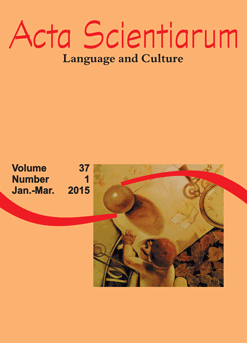<b>The <i>Opus Dei</i> of violence in Augusto Matraga
Resumen
The experiences experienced by men in modernity transform literary narratives, thematically and formally, establishing the aim to use allegory as an explanatory stage of that new reality. In the book The Origin of German Tragic Drama, by Walter Benjamin, he conceives allegory as the revelation of a hidden truth that does not represent things just as they are, but provides a version of how they were or might have been. As a reflection of the principles implied in that reading, this paper takes Benjamin’s allegory as an analytical category aiming at identifying the representation of violence in the short story A hora e a vez de Augusto Matraga (The Hour and Turn of Augusto Matraga), by Guimarães Rosa. Our analysis opens a dialogue with the dialectical perspective, in which social-historical conditioning factors contribute to understand Minas Gerais backlands, whose ethos supplies a perception of the world incorporated by Guimarães Rosas’ poetics, widening the view of a violent and enchanting world.
Descargas
DECLARAÇÃO DE ORIGINALIDADE E DIREITOS AUTORAIS
Declaro que o presente artigo é original, não tendo sido submetido à publicação em qualquer outro periódico nacional ou internacional, quer seja em parte ou em sua totalidade.
Os direitos autorais pertencem exclusivamente aos autores. Os direitos de licenciamento utilizados pelo periódico é a licença Creative Commons Attribution 4.0 (CC BY 4.0): são permitidos o acompartilhamento (cópia e distribuição do material em qualqer meio ou formato) e adaptação (remix, transformação e criação de material a partir do conteúdo assim licenciado para quaisquer fins, inclusive comerciais.
Recomenda-se a leitura desse link para maiores informações sobre o tema: fornecimento de créditos e referências de forma correta, entre outros detalhes cruciais para uso adequado do material licenciado.




















6.png)









